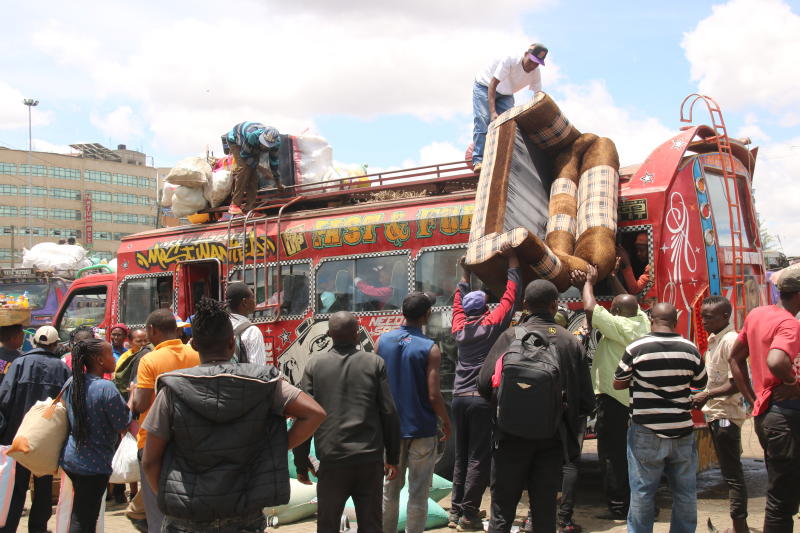Mwingi travellers board a matatu as a couch is loaded on the carrier on April 15, 2022 [David Gichuru, Standard]
×
The Standard e-Paper
Stay Informed, Even Offline

Mwingi travellers board a matatu as a couch is loaded on the carrier on April 15, 2022 [David Gichuru, Standard]
Transporters have said they plan to increase the cost of their services as they seek to cushion themselves from the recent increase in fuel prices and pass the additional costs to their customers.